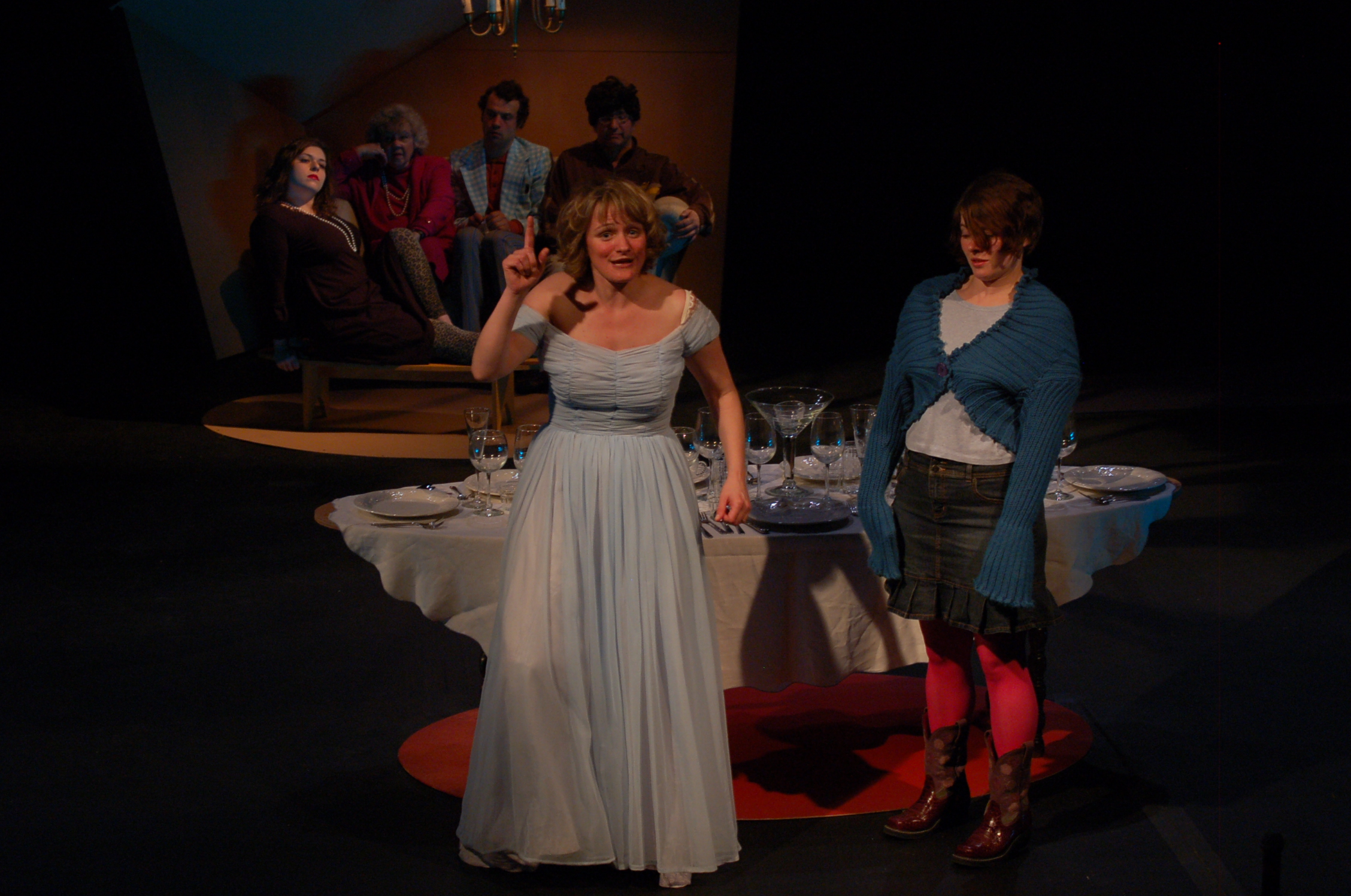 Thanks to Carol Triffle, this is an unplanned Part Two of the previous post on Monica Drake’s recently published nove Clown Girl and Triffle’s play at Imago The Dinner. To make utter and complete sense of it, insofar as that’s actually possible, you’re going to have to take a peek at the original post, below, which is fairly long. If you’re like me, though, you’ll just charge on through THIS post, figuring things out on the fly, and then decide whether or not you want to spend yet MORE time on clowns later! But really, that’s false advertising, because the posts aren’t about clowns themselves, they are more about the creation of clowns.
Thanks to Carol Triffle, this is an unplanned Part Two of the previous post on Monica Drake’s recently published nove Clown Girl and Triffle’s play at Imago The Dinner. To make utter and complete sense of it, insofar as that’s actually possible, you’re going to have to take a peek at the original post, below, which is fairly long. If you’re like me, though, you’ll just charge on through THIS post, figuring things out on the fly, and then decide whether or not you want to spend yet MORE time on clowns later! But really, that’s false advertising, because the posts aren’t about clowns themselves, they are more about the creation of clowns.
After I had written “Clowns are wild,” I sent the link to Ms. Triffle, just so she’d be up-to-date on the slanders and misapprehensions about her play that I’d committed to digital eternity. She was kind enough to respond, and here’s part of what she said in two pieces:
It’s funny that you wrote about the book Clown Girl because Chuck Palahniuk wrote the introduction to that book and his book Choke got me thinking of doing a show about the etiquette of dining. I haven’t read Clown Girl but I will.
So, for starters, a coincidence chain, with Chuck Palahniuk in the middle: Choke to The Dinner, Palahniuk to Clown Girl, (and then my connection of Clown Girl to The Dinner). This is common enough in Portland, I suppose, this overlapping, and part of the reason for an emergence of a certain “Portland style” or “approach” or maybe “embrace” — that I would venture to say that involves a mix of risk-taking, craft, humility (with self-confidence), consciousness of the social (both in the form of the audience AND of the work’s context), and, well, we might go on, but this is the subject for a Ph.D. thesis perhaps, not a parenthetical paragraph in a post about other things.
Triffle continues:
Like the line Dolores says in The Dinner “I fall down and then I get right back up again” that is my description of the human condition. The funny part is that she does it over and over again with not much success. Lecoq once told me to stop walking into walls and do what comes naturally. I did think of Lecoq while writing and directing this play. [A] Lecoq clown has a risky rawness that exposes our inner naivety and desires. Lecoq showed me that movement and timing can sometimes say as much as words.
Falling down and getting back up, yes, and from a certain perspective, it can be hilarious. Or “funny” as in “interesting.”
Continue reading More clowns gone wild via Carol Triffle